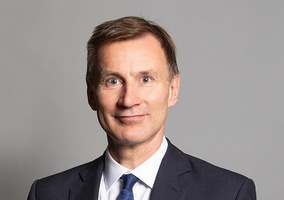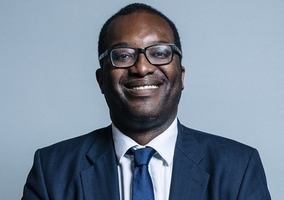Charity sector bodies have urged the chancellor not to proceed with expected large public spending cuts in his autumn statement tomorrow, warning that this will add extra demand for charities’ already-stretched services.
Jeremy Hunt is due to unveil the government’s spending plans in his speech tomorrow, with think tank New Philanthropy Capital (NPC) warning charities to “brace themselves” for what the chancellor’s expected cuts will mean “for them and the people they support”.
Hunt is expected to announce more than £30bn of cuts alongside tax rises. His rationale for these measures would likely be to plug a £50bn-£60bn “fiscal black hole” identified by the Office for Budget Responsibility.
But charity sector bodies have urged Hunt to instead invest in public services to help address the root causes of poverty that beneficiaries are enduring.
They also urged for urgent clarity on what support charities will receive from the government on energy bills after its current scheme ends in March.
Meanwhile, Office for National Statistics today reported that interest rates have risen to 11.1%, a 41-year high.
Jay Kennedy, director of policy and research at the Directory of Social Change, said: “The high level of inflation means it’s even more critical that those on the lowest incomes are adequately supported, or we’ll see even more rapid growth in the need for food banks and other crisis support.”
NCVO: ‘Addressing root causes of poverty must be top priority’
Sarah Vibert, chief executive of NCVO, said: “The autumn statement is an opportunity for government to demonstrate its commitment to listening to the concerns of communities.
“Addressing the root causes of food and fuel poverty must be the top priority for the chancellor so we can build stronger and more resilient communities and tackle systemic inequalities. This means guaranteeing that benefits will rise in line with inflation, investing in public services to deliver inclusive growth, protecting the UK’s ODA budget, and ensuring that charities receive additional support with their energy bills beyond April 2023.
“Our members are facing an exponential rise in demand for food, debt advice and mental health support, while their own bills skyrocket. Charities and volunteers are supporting people pushed into poverty and picking up the pieces when existing inequalities are exacerbated. They help build local resilience by relieving pressure on over-stretched social care, health, and local government services.
“But charities cannot deliver services on good will alone. Resource is finite. It is imperative that government does not prioritise the potential cost of future inflationary increases over the critical needs of communities across the country.
“We are calling for urgent support and long-term stability for charities and volunteers if they are to continue providing public services that are essential to driving local and national economic growth. People are already going without, and charities are already carrying a heavy weight.
“We need immediate reassurance the government will address this urgent and growing need.”
CFG: ‘He should resist the urge to simply batten down the hatches’
Caron Bradshaw, chief executive of Charity Finance Group (CFG), said: “We want to see our people, communities and economy thrive, rather than struggle to survive. The chancellor must do all he can and he should resist the urge to simply batten down the hatches; that would be false economy. Instead, on Thursday, he should make sure he invests for our collective future.
“CFG has joined with 28 other sector organisations and leaders, to set out what we want to see from government in the immediate and medium term. We firstly ask for benefits to rise in line with inflation, to support those on the lowest incomes during the cost-of-living crisis and beyond. The government must do all it can to lessen the impact on the most vulnerable. This makes social and economic sense.
“Secondly, to ensure our communities remain resilient, local government needs a sustainable financial settlement. Without this, it will be difficult to provide targeted and effective crisis support for those most in need. When local services are cut, charities and voluntary organisations often move in to provide those vital support services and resources. When we are overstretched there’s a risk of failing to meet needs and people suffer.
“Inflation rates are now higher than we’ve seen in more than 40 years. This winter, the vast majority of people and organisations will be facing some very tough choices. A surge in demand for charitable services seems inevitable, as does a decrease in income for many. To help the sector plan ahead and remain financially resilient, we are asking for greater clarity, sooner rather than later, on whether the energy support scheme will continue beyond April.
“We hope the chancellor will deliver a budget that is honest about the choices politically and economically being made. The urgent needs of all our communities and the most disadvantaged in society cannot be sacrificed to satisfy a narrative that austerity is unavoidable. In the long run, we can only rebuild our economy and come out stronger by putting the needs of our communities first.”
NAVCA: ‘Further cuts will affect vulnerable people’
Maddy Desforges, chief executive of NAVCA, said: ‘’We want to see support targeted at those who need it most, including pensions, benefits and the minimum wage increased in line with inflation.
“We want to see investment in public services and an increase in local government funding to ensure that a better safety net is in place for the most vulnerable and deprived communities. Further cuts to public services will affect people who are already greatly impacted by the cost-of-living crisis.’’
NPC: ‘Charities should brace themselves’
Leah Davis, NPC's head of policy, said: “Charities should brace themselves for what the chancellor’s ‘decisions of eye-watering difficulty’ will mean for them and the people they support. We already know taxes will rise and spending will be cut or frozen, hitting people on low incomes the hardest.
“For many of the working age population, inflation has never been higher. A better minimum wage may help some, but spiralling food, energy, and housing costs mean many face a very bleak winter. It’s critical that we hear more on the future of the Energy Support Scheme.
“Charities will also be anxious to hear more on the Energy Bill Relief scheme for their own operations, and whether the sector’s lobbying to keep charities part of the scheme has been a success.
“Higher taxes may lead to people giving less to charity, whilst spending cuts mean public sector contracts will get tighter, which is bad news given many charities already subsidise these contracts from other income. Charities need to be honest with their funders about the challenges they face and the support they need to help people get through this cost-of-living crisis.”
CTG: ‘Hoping for no negative consequences for charities’
Richard Bray, CTG chair, said: “We appreciate that this is a difficult period for the finances of the country and that everyone is being expected share in the pain that will create.
“We will be hoping that the government will ensure that there are no negative consequences for charities in the measures that they introduce. The government’s earlier proposals for Gift Aid transitional relief prove that this is possible. And we will be hoping for similar measures should they be required.
“The work of charities is more important than ever during these challenging times.”
Bond: ‘Increase the aid budget’
Meanwhile, NGO umbrella body Bond urged an increase to the UK’s aid budget.
Simon Starling, director of policy, advocacy and research, said: “A decision to increase the UK aid budget above 0.5% would be welcome recognition of the extreme demands on it to deal with multiple global crises, and increasingly to pay refugee costs within the UK.
“With global poverty rising, the world’s most marginalised communities are already bearing the brunt of climate change, inequality, and conflict.
“They should not be the ones to pay. Lifting the artificial ceiling on UK aid would be a welcome step forwards, paving the way for a return to 0.7 as soon as possible. UK aid must be focused on supporting the most marginalised communities around the world.”
Related Articles












